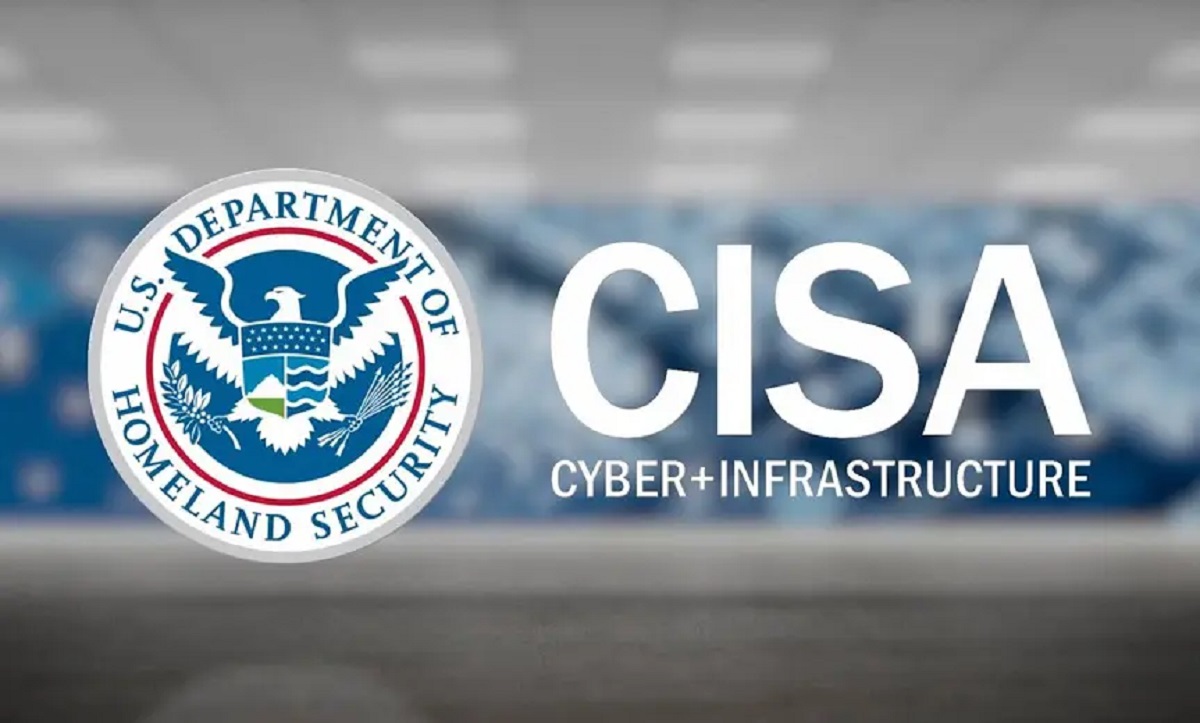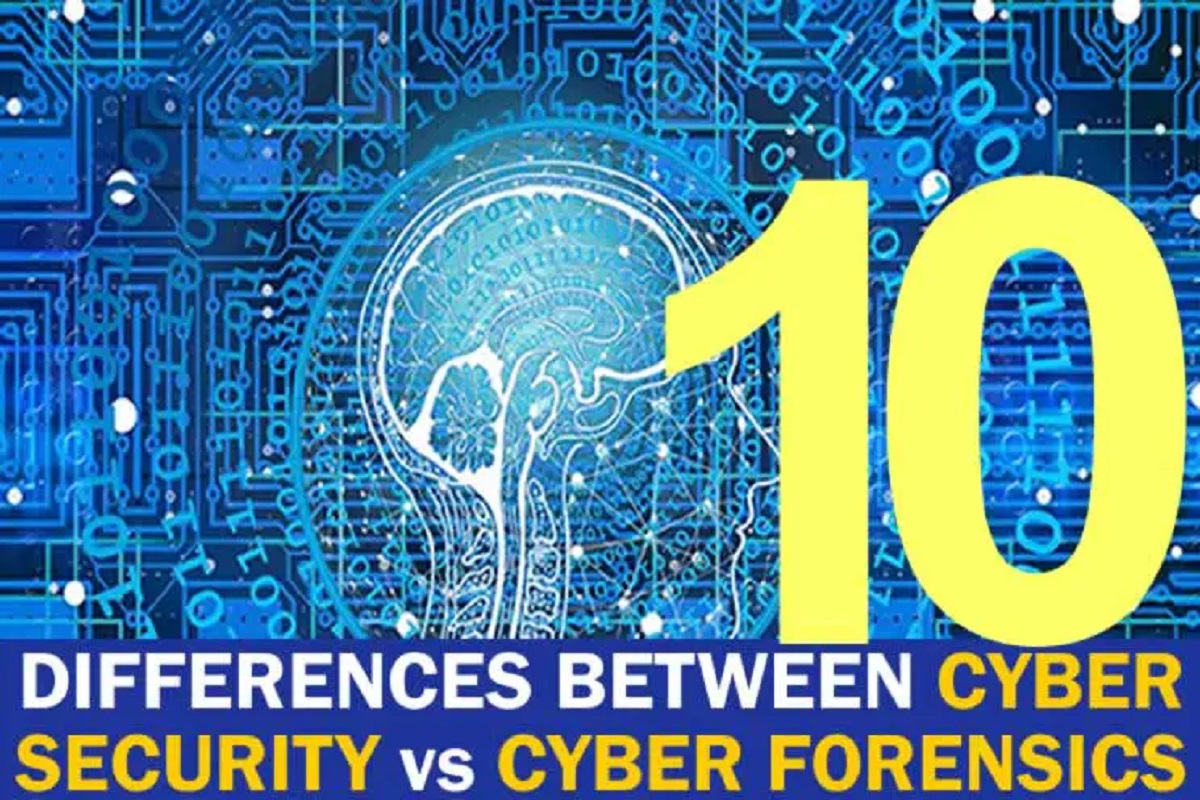Introduction
The role of the Federal Bureau of Investigation (FBI) has evolved significantly over the years, adapting to the changing landscape of crime and national security threats. As technology continues to advance, the FBI has recognized the growing importance of cybersecurity in safeguarding our nation’s interests. In this digital age, where cyber attacks have the potential to disrupt critical infrastructure, compromise sensitive information, and even threaten national security, it is imperative for the FBI to include cybersecurity as one of its core responsibilities.
Cybercrime has emerged as a major threat, impacting individuals, businesses, and governments worldwide. Hackers and cybercriminals are becoming more sophisticated, constantly finding new ways to exploit vulnerabilities in computer networks and systems. The FBI’s mandate includes protecting the United States against terrorist attacks, foreign intelligence threats, and high-level criminal organizations. It is no surprise that the agency has expanded its focus to include cybersecurity, as it is an area where criminals can cause significant harm within the virtual realm.
The digital landscape provides cybercriminals with vast opportunities to breach governmental, organizational, and personal networks, steal confidential information, and disrupt essential services. With the increasing interconnectedness of our society, a single cyber attack could have far-reaching consequences, impacting not only our national security but also our economy and day-to-day lives. Recognizing this, the FBI has prioritized cybersecurity to combat these threats and ensure the protection of critical infrastructure, intellectual property, and personal privacy.
The inclusion of cybersecurity as a core responsibility for the FBI allows for a centralized and coordinated approach in tackling cybercrime. By dedicating resources, personnel, and expertise to this field, the agency can focus on developing strategies, investigating cybercriminals, and sharing intelligence with domestic and international partners. This ensures a unified response to cyber threats and a more cohesive and comprehensive approach to protecting our nation’s digital infrastructure.
Background on the FBI’s role
The Federal Bureau of Investigation (FBI) was established in 1908 as a federal law enforcement agency responsible for enforcing federal laws and protecting national security. Initially focused on combating organized crime and investigating violations of federal laws, the FBI’s mission has expanded over the years to address a wide range of threats to the nation, including terrorism, espionage, and cybercrime.
With its broad jurisdiction and investigative authority, the FBI plays a crucial role in upholding the rule of law and maintaining the safety and security of the United States. The agency operates under the United States Department of Justice and works closely with other federal, state, local, and international law enforcement agencies to combat crime and protect the interests of the nation.
In recent years, the FBI’s responsibilities have adapted to reflect the changing nature of criminal activities in the digital realm. As technology has become integral to our lives, cybercrime has emerged as a significant threat, requiring the agency to develop expertise in combating cyber threats effectively. The FBI has recognized the need to address these challenges head-on by integrating cybersecurity into its core responsibilities.
The FBI’s ability to investigate and disrupt criminal networks, gather intelligence, and coordinate with other agencies makes it well-suited to combat cybercrime. The agency’s vast network of field offices, specialized units, and experienced personnel provides a strong foundation for tackling the evolving challenges posed by cyber threats.
Moreover, the FBI has developed partnerships with domestic and international organizations, enabling the sharing of intelligence and fostering collaboration in combating cybercrime. These partnerships enhance its ability to proactively detect and respond to cyber threats, as well as to investigate and prosecute those responsible for cybercrimes.
By leveraging its unique capabilities and expertise, the FBI can make a significant impact in the fight against cybercrime. Through its investigative efforts, the agency not only brings cybercriminals to justice but also disrupts criminal networks and provides critical support to strengthen the cybersecurity defenses of the nation.
The growing threat of cybercrime
Cybercrime has rapidly evolved into a pervasive and sophisticated threat, affecting individuals, businesses, and governments on a global scale. The digital realm provides ample opportunities for cybercriminals to exploit vulnerabilities, steal sensitive information, and wreak havoc with far-reaching consequences. As technology continues to advance, the threat of cybercrime continues to grow, necessitating the inclusion of cybersecurity as a vital responsibility of the FBI.
The widespread use of the internet and interconnected devices has opened a Pandora’s box of cyber threats. From state-sponsored hacking and corporate espionage to data breaches and online fraud, cybercriminals employ a range of tactics and techniques to carry out their illegal activities. These threats not only affect the financial sector but also target critical infrastructure, government agencies, and even individuals’ personal lives.
One of the driving forces behind the growing threat of cybercrime is the increasing sophistication of hackers and criminal organizations. Cybercriminals are constantly evolving their methods, staying one step ahead of security measures and exploiting vulnerabilities in software, network infrastructure, and human behavior. Their attacks are becoming more targeted, persistent, and destructive, posing a significant challenge for law enforcement agencies.
The financial impact of cybercrime is staggering. According to a report by the Center for Strategic and International Studies, the global cost of cybercrime exceeded $1 trillion in 2020. This includes losses resulting from theft of intellectual property, financial fraud, ransomware attacks, and disruption of critical infrastructure. These financial losses, coupled with the potential damage to reputation and loss of consumer trust, highlight the urgent need to combat cybercrime effectively.
Moreover, cybercrime is not limited to financial implications alone. It has the potential to undermine national security, as evidenced by state-sponsored cyber espionage and attacks on government agencies. Critical infrastructure, such as power grids, transportation systems, and healthcare networks, are prime targets for cybercriminals aiming to disrupt essential services and cause widespread chaos. Protecting these key sectors from cyber threats is essential to safeguarding the nation’s security and wellbeing.
Furthermore, the digital landscape provides an anonymous and global platform for cybercriminals to operate, making it difficult to identify and apprehend perpetrators. The global nature of cybercrime requires international cooperation and collaboration among law enforcement agencies to effectively investigate and prosecute those responsible for cyber offenses. The FBI, with its extensive network of partnerships and its expertise in conducting complex investigations, plays a critical role in this global effort.
The need for a centralized approach to cybersecurity
As the threat landscape of cyberspace continues to evolve, it has become evident that a unified and centralized approach to cybersecurity is essential in effectively combating cyber threats. The inclusion of cybersecurity as a core responsibility of the FBI reflects the urgent need for a coordinated national effort to safeguard our digital infrastructure and protect against cybercriminals.
Cybersecurity requires a multi-faceted approach that incorporates prevention, detection, response, and recovery. By centralizing cybersecurity efforts, the FBI can pool its resources, expertise, and intelligence to develop comprehensive strategies that address the ever-changing nature of cyber threats. This centralization allows for a more focused and strategic allocation of resources and enhances the agency’s ability to proactively identify and mitigate cyber risks.
In addition, a centralized approach enables the FBI to establish consistent standards and best practices in cybersecurity across different sectors and organizations. Standardization helps ensure that critical infrastructure, government agencies, and private entities adhere to robust security measures and protocols, minimizing vulnerabilities and the impact of cyber attacks. It promotes a culture of cybersecurity awareness and resilience, making it harder for cybercriminals to exploit weaknesses across the board.
The FBI’s role in providing cybersecurity leadership and expertise goes beyond investigating cybercrimes. The agency actively collaborates with public and private sector partners to share threat intelligence, conduct joint operations, and facilitate information sharing on emerging cyber threats. This collaborative approach strengthens the nation’s collective defense against cyber attacks by leveraging the diverse knowledge and capabilities of various organizations.
A centralized approach also streamlines the coordination and response to cyber incidents. In the event of a cyber attack, the FBI can rapidly mobilize its resources, deploy cyber response teams, and work in close collaboration with other agencies to minimize the impact and identify the perpetrators. This coordinated response helps mitigate the damage caused by cyber attacks, facilitates the recovery process, and ensures that valuable lessons learned are shared to bolster future defenses.
Furthermore, a centralized approach to cybersecurity ensures that the FBI is at the forefront of emerging technologies and evolving cyber threats. By investing in research and development, the agency can stay ahead of cybercriminals, employing advanced tools, techniques, and methodologies to detect and counter emerging cyber threats effectively. This technological expertise is instrumental in supporting investigations, analyzing digital evidence, and building cases against cybercriminals.
In an interconnected world, where cyber threats know no boundaries, a centralized approach to cybersecurity is vital to safeguard our nation’s interests. By uniting efforts, sharing knowledge, and leveraging expertise, the FBI can play a pivotal role in protecting the United States’ digital infrastructure and ensuring the continued safety and security of our increasingly digital lives.
The FBI’s expertise in investigating cybercrimes
The Federal Bureau of Investigation (FBI) has established itself as a global leader in investigating cybercrimes, leveraging its expertise, resources, and advanced techniques to combat the increasing threats in the digital landscape. As cybercriminals become more sophisticated in their techniques, the FBI’s specialized units and experienced personnel play a crucial role in gathering evidence, identifying perpetrators, and bringing them to justice.
The FBI’s Cyber Division is at the forefront of investigating and disrupting cybercriminal activities. The division is comprised of skilled agents and analysts who specialize in digital forensics, cyber intelligence, and cyber threat analysis. These experts are trained to navigate complex network infrastructures, analyze large volumes of data, and uncover digital evidence that can be essential in building strong cases against cybercriminals.
The agency’s Cyber Action Teams (CATs) are rapid-response units that are deployed to assist in cyber incident investigations. These highly trained and mobile teams provide valuable support in the aftermath of a cyber attack, working alongside affected organizations to contain the breach, identify the scope of the incident, and collect crucial evidence for prosecution. Their expertise and quick response help minimize the impact of cyberattacks and facilitate the recovery process.
The FBI collaborates closely with other domestic and international law enforcement agencies, intelligence agencies, and private sector partners to share information, intelligence, and expertise in combating cybercrimes. Through these collaborations, the FBI can gather valuable insights into emerging threats, trends, and attack techniques, enhancing its ability to detect, prevent, and investigate cybercrimes more effectively.
In addition to its technical expertise, the FBI actively works to disrupt cybercriminal networks through strategic operations and initiatives. By infiltrating online forums and marketplaces used by cybercriminals, the agency can gain valuable intelligence and identify key individuals involved in cybercrime activities. This proactive approach not only helps dismantle criminal networks but also serves as a means to gather intelligence that can be used to prevent future attacks.
The FBI’s expertise extends beyond cybersecurity investigations and includes combating other cyber-related crimes such as online fraud, identity theft, and child exploitation. The agency’s involvement in these areas highlights its dedication to safeguarding individuals from the various forms of cyber threats they may encounter in their digital lives.
Moreover, the FBI plays a significant role in conducting international cybercrime investigations. By collaborating with foreign law enforcement agencies and leveraging its global network, the FBI can pursue cybercriminals who operate in multiple jurisdictions. This international cooperation is crucial in addressing the global nature of cybercrime and ensuring that cybercriminals are held accountable for their actions.
Overall, the FBI’s expertise in investigating cybercrimes allows it to stay one step ahead of cybercriminals and protect the interests of the United States and its citizens. Through its specialized units, rapid-response teams, collaborations, and proactive strategies, the agency continues to play a pivotal role in the fight against cyber threats, working towards a safer and more secure digital landscape.
Strengthening national security through cybersecurity efforts
Cybersecurity plays a critical role in strengthening national security in today’s interconnected world. The Federal Bureau of Investigation (FBI) recognizes the importance of robust cybersecurity efforts in safeguarding the United States against cyber threats that can impact government institutions, critical infrastructure, and the overall well-being of the nation. By integrating cybersecurity into its responsibilities, the FBI contributes significantly to fortifying national security in the digital age.
Cyber threats, such as state-sponsored cyber espionage, terrorist cyber attacks, and hacking attempts on critical infrastructure, pose significant risks to national security. The FBI’s expertise in investigating and countering cybercrimes directly contributes to mitigating these threats. By identifying and apprehending cybercriminals and disrupting malicious cyber activities, the FBI plays a crucial role in preventing potential harm to the country’s national security interests.
Protecting critical infrastructure, such as power grids, transportation systems, and communication networks, is paramount to maintaining national security. These essential systems are increasingly interconnected and reliant on technology. The FBI’s focus on cybersecurity allows it to collaborate with infrastructure operators, government agencies, and private sector partners to enhance the resilience of these critical systems. By sharing threat intelligence, offering guidance on best practices, and responding swiftly to cyber incidents, the FBI helps safeguard the nation’s critical assets against cyber threats.
Furthermore, the FBI’s cybersecurity efforts support the protection of sensitive government information and defense networks. For instance, state-sponsored hackers often target government agencies and defense contractors to gain access to classified information and disrupt military operations. By investigating these cyber intrusions, the FBI can help secure sensitive data and prevent unauthorized access to national defense networks. This contributes directly to enhancing national security and protecting the country’s interests both at home and abroad.
The FBI’s role in strengthening national security through cybersecurity efforts also extends to combating the proliferation of cyber weapons and technologies. The agency works closely with its partners to identify and disrupt illegal activities related to the development, sale, and use of cyber weapons. By preventing the misuse of these tools, the FBI helps to protect national security by reducing the potential for cyber attacks and the damage they can cause.
Another critical aspect of the FBI’s cybersecurity efforts is the protection of intellectual property, trade secrets, and sensitive research and development data. Economic espionage and cyber theft of intellectual property pose significant threats to the nation’s economic security and competitiveness. By investigating and prosecuting cybercriminals engaged in such activities, the FBI supports the protection of vital economic assets and fosters innovation and economic growth.
In summary, cybersecurity is a crucial component of national security in today’s interconnected world. The FBI’s integration of cybersecurity into its responsibilities enhances its ability to protect the nation from cyber threats that can undermine national security, damage critical infrastructure, and compromise sensitive data. Through its investigative expertise, collaborations, and proactive efforts, the FBI contributes significantly to strengthening national security in the face of evolving cyber threats.
Collaboration with other agencies and organizations
Collaboration is paramount when it comes to effectively combating cyber threats, and the Federal Bureau of Investigation (FBI) recognizes the importance of working with other agencies and organizations in the realm of cybersecurity. The complexity and evolving nature of cybercrime demand a collective effort to share information, leverage expertise, and coordinate responses. By fostering collaboration, the FBI enhances its ability to protect the nation’s digital infrastructure and stay ahead of cyber threats.
One of the key ways the FBI collaborates with other agencies is through information sharing. The agency actively partners with the Department of Homeland Security (DHS), the Department of Defense (DoD), and other federal, state, local, and international law enforcement agencies to share threat intelligence and coordinate efforts. This collaborative information-sharing network enables the FBI to gain insights into emerging cyber threats, identify trends, and take proactive measures to prevent and respond to cybercriminal activities.
In addition to government agencies, the FBI also collaborates with private sector organizations, including technology companies, financial institutions, and critical infrastructure operators. By establishing public-private partnerships, the FBI can leverage the expertise, resources, and industry-specific knowledge of these organizations to enhance cybersecurity efforts. Private sector collaboration is crucial in understanding emerging cyber threats, developing effective defense strategies, and sharing best practices.
These collaborations go beyond information sharing and extend to joint investigations and operations. The FBI works closely with domestic and international partners to coordinate efforts in investigating cybercrimes with cross-border implications. By pooling resources, sharing investigative techniques, and coordinating international law enforcement actions, the FBI strengthens its ability to bring cybercriminals to justice, regardless of their location.
Furthermore, the FBI actively participates in international working groups and conducts capacity-building programs to enhance global cooperation in combating cyber threats. Through these initiatives, the agency helps foreign partner nations build their cybersecurity capabilities, establish legal frameworks, and develop effective response protocols. This international collaboration improves the collective response to global cyber threats and contributes to a safer digital environment for all nations.
The collaboration between the FBI and other agencies and organizations also extends to research and development efforts. The agency works closely with academia, cybersecurity research institutes, and technology companies to stay at the forefront of emerging technologies, anticipate future threats, and develop innovative solutions. By leveraging the collective expertise and innovation of these partners, the FBI can better adapt to the ever-evolving landscape of cyber threats.
Lastly, the FBI actively collaborates with industry-specific Information Sharing and Analysis Centers (ISACs) and Computer Emergency Response Teams (CERTs). These organizations serve as conduits for sharing cyber threat information, providing sector-specific analysis, and facilitating incident response and recovery efforts. Collaborating with these specialized organizations helps the FBI tailor its cybersecurity approaches to specific sectors and industries, improving overall resilience and defense against cyber threats.
In summary, collaboration is a cornerstone of effective cybersecurity efforts, and the FBI recognizes its significance in protecting the nation from cyber threats. Through collaborations with other government agencies, private sector organizations, international partners, and industry-specific entities, the FBI fosters a unified response to cyber threats, enhances its ability to gather intelligence, and strengthens its investigative and preventive capabilities. By leveraging collective knowledge and resources, the FBI can proactively address cyber threats and maximize its impact in safeguarding the nation’s digital infrastructure.
Conclusion
The inclusion of cybersecurity as a core responsibility of the Federal Bureau of Investigation (FBI) signifies the agency’s recognition of the growing threats posed by cybercriminals and the need to protect our nation’s digital infrastructure. Cybercrime has evolved into a pervasive and sophisticated issue, with cyberattacks becoming more frequent, complex, and damaging. By integrating cybersecurity into its responsibilities, the FBI is better equipped to combat cyber threats, strengthen national security, and safeguard the interests of the United States and its citizens.
The FBI’s expertise in investigating cybercrimes, collaborating with other agencies and organizations, and developing innovative strategies underscores its commitment to countering cyber threats effectively. With its specialized units, rapid-response teams, and collaborations with domestic and international partners, the FBI can proactively identify, investigate, and disrupt cybercriminal activities. By sharing intelligence, coordinating responses, and leveraging collective resources, the FBI enhances its ability to detect evolving cyber threats, provide timely incident response, and bring cybercriminals to justice.
A centralized approach to cybersecurity allows for a cohesive and coordinated response to cyber threats, enabling the FBI to pool its expertise, resources, and intelligence to protect critical infrastructure, safeguard sensitive information, and defend against state-sponsored cyber espionage and terrorism. Furthermore, the agency’s collaboration with other agencies, private sector organizations, and international partners enhances the collective ability to detect, prevent, and respond to cyber threats on a global scale. By fostering public-private partnerships, promoting information sharing, and participating in capacity-building initiatives, the FBI contributes to a safer digital environment for all.
In conclusion, the inclusion of cybersecurity as a core responsibility of the FBI reflects the agency’s adaptability to changing threats and its commitment to safeguarding the nation’s security. Through its expertise, collaborations, and proactive efforts, the FBI plays a pivotal role in combating cybercrime, strengthening national security, and ensuring the continued safety and security of our increasingly digital world. By staying ahead of cyber threats, developing effective strategies, and fostering partnerships, the FBI is at the forefront of protecting the interests of the United States and its citizens in the ever-evolving landscape of cyber threats.

























